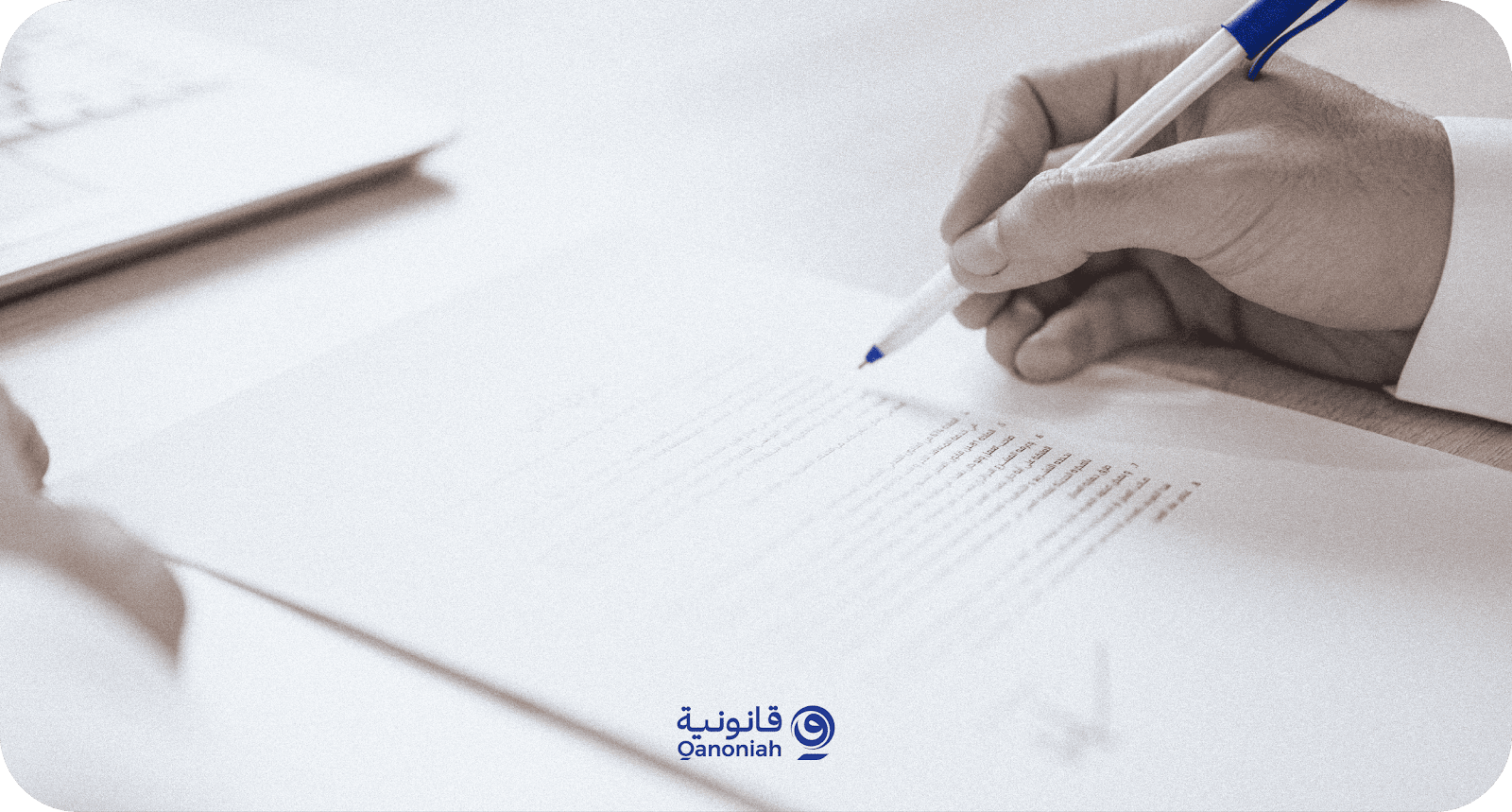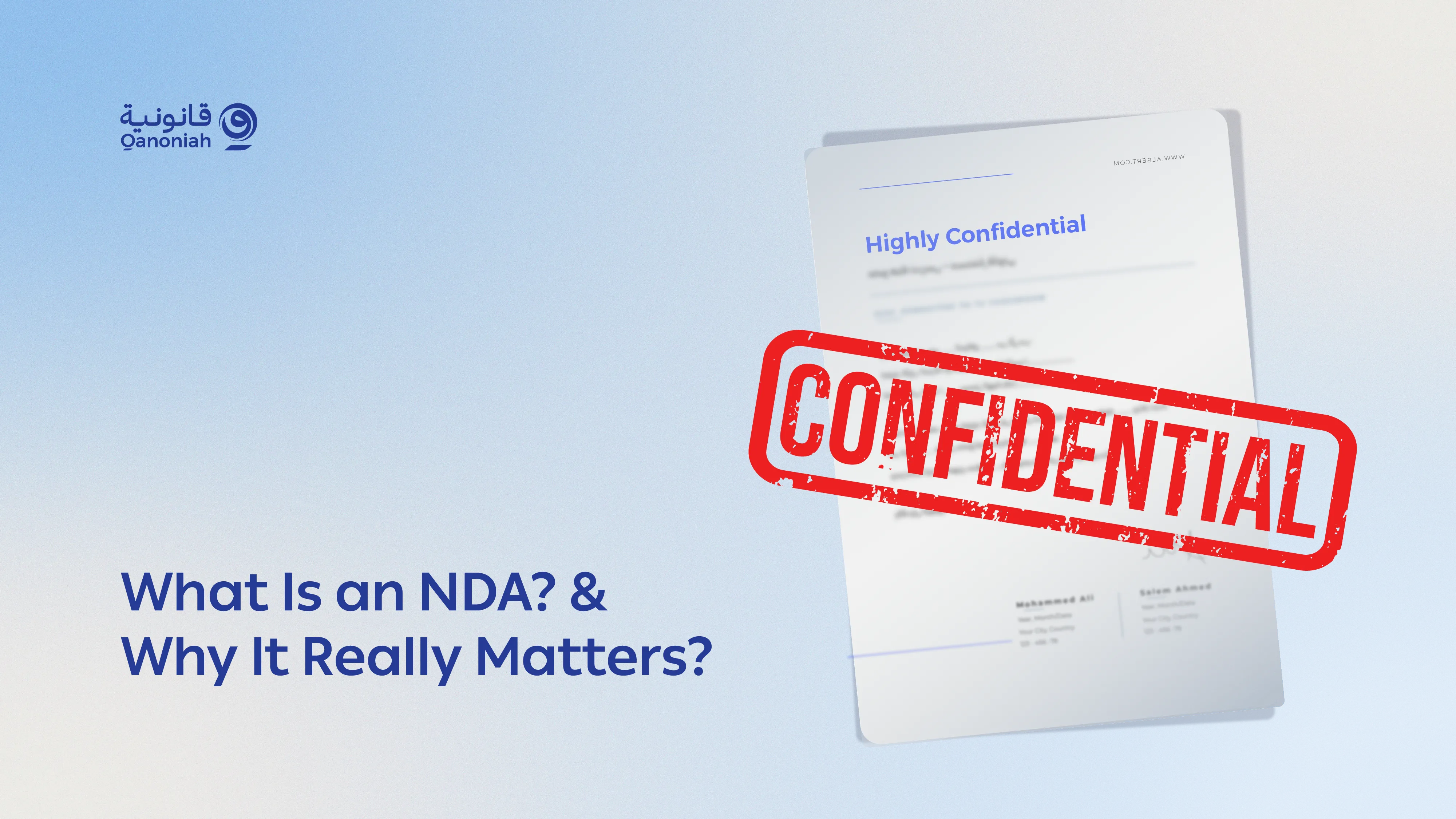The Probation Period in the Saudi Labor Law , Clear Regulations to Ensure the Rights of Both Parties ⏱

Qanoniah Team
January 6, 2026
Reviewed by
Tasneem Moathen
About the Author

Qanoniah Team
An editorial team that combines expertise in content creation with legal knowledge of Saudi regulations, delivering reliable articles supported by official sources.
What is the Probation Period?
It is a period defined at the beginning of the employment contract during which both the employer and the employee have the right to terminate the contract without compensation, unless either party violates the applicable legal regulations.
What is the Probation Period?
It is a period defined at the beginning of the employment contract during which both the employer and the employee have the right to terminate the contract without compensation, unless either party violates the applicable legal regulations.
The Purpose of the Probation Period:
- To allow the employer to assess the employee’s competence and skills.
- To give the employee a chance to experience the work environment and evaluate its suitability.
- To avoid committing to long-term contracts before ensuring compatibility between both parties.
⏱ Duration of the Probation Period and Its Legal Provisions
- The maximum duration of the probation period is 180 days.
- The probation period must be stated in writing in the employment contract; otherwise, the contract is considered final and cannot be terminated without compensation.
- Official holidays and sick leaves are not counted within the probation period.
- The probation period may be divided into multiple consecutive phases, provided this is explicitly stated in the contract.
✍️ Sample Probation Clause in the Employment Contract:
The second party shall be subject to a probation period of (...) days, starting from the date of commencing work. Eid Al-Fitr and Eid Al-Adha holidays, as well as sick leave, shall not be counted within this period. Either party has the right to terminate the contract during this period.

Is It Permissible to Repeat the Probation Period?
An employee may not be placed under probation with the same employer more than once, except in two cases:
- If the employee is being hired for a different job position.
- If more than 6 months have passed since the previous contractual relationship ended.
💡 Note: Confusing “splitting the probation period” with “repeating the probation period” is a common mistake, and it may invalidate the employee’s rights if not clearly and properly stated in the contract.
Termination of the Employment Contract During the Probation Period
First: When the Employer or Employee Terminates the Contract During the Probation Period
- If the employer terminates the contract during the probation period:
- The employee is not entitled to severance pay pursuant to Article 77 of the Labor Law.
- The employee is not entitled to an end-of-service award as per paragraph 6 of Article 80 of the Law.
- The employee is entitled to receive wages for the days actually worked at the establishment. For example, if the contract is terminated on the 15th day of the month, the employee is paid only for those 15 days.
- The employee must be compensated for unused leave and overtime upon termination during the probation period. For example, if the employee worked for two months and is entitled to 30 days of annual leave per year, they are credited with 2.5 days per month. Therefore, after two months, the employee is entitled to payment for 5 days of leave, pursuant to Article 111 of the Law.
2- If the employee terminates the contract during the probation period:
- The company cannot require the employee to serve a notice period or pay compensation, based on Article 53 of the Labor Law.
- The employee is not eligible for SANED compensation if the termination was initiated by them.
Second: Termination of the Employment Contract After the Probation Period:
- Cases in Which Termination Is Considered Unlawful:
- The probation period has ended.
- There is no explicit clause in the contract stating the probation period.
- The probation period was extended without the employee’s written consent.
In these cases, the termination is considered unlawful, and Article 77 of the Labor Law shall apply.
2. Compensation for the Affected Party Based on Contract Type:
- Fixed-Term Contract: The affected party is entitled to compensation for the remaining duration of the contract, provided that the compensation is not less than two months’ salary.
- Open-Ended (Unlimited) Contract: The affected party is entitled to fifteen days’ salary for each year of service, with compensation not to be less than two months’ salary.
⚠️ Important Notes:
- Including a probation clause in the contract is essential, and it is important to verify its start date and how it is calculated.
- If there are leaves during the probation period, the days must be added to the total duration. For example: if a 180-day probation period is agreed upon and includes 4 days for Eid Al-Adha and 3 days of sick leave, these 7 days are added, making the total probation period 187 days.
- Flexible work contracts are not subject to a probation period, in accordance with Article 27 of the Executive Regulations of the Labor Law.

🧠 Bottom Line
The probation period is a regulatory tool that gives both parties a fair opportunity for evaluation. However, misunderstanding its provisions may lead to unlawful termination or loss of entitlements. Therefore, both employees and employers are advised to carefully review the relevant legal texts and ensure proper documentation of contracts to avoid potential disputes.
🔗 Related Documents
- The Probation Period or Probation Clause in the Labor Law.
- The Labor Law and Its Executive Regulations.

.webp)

.png)
.webp)
.webp)